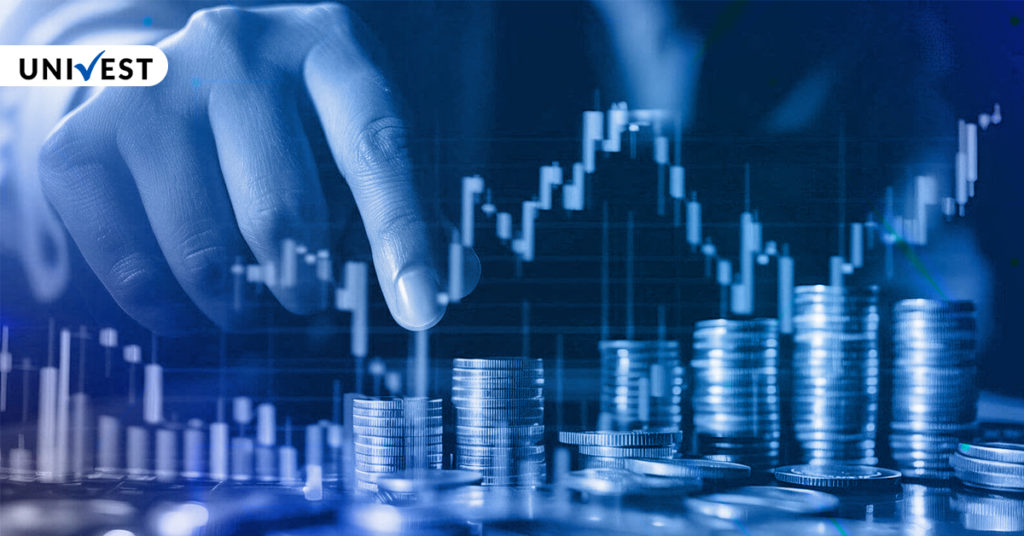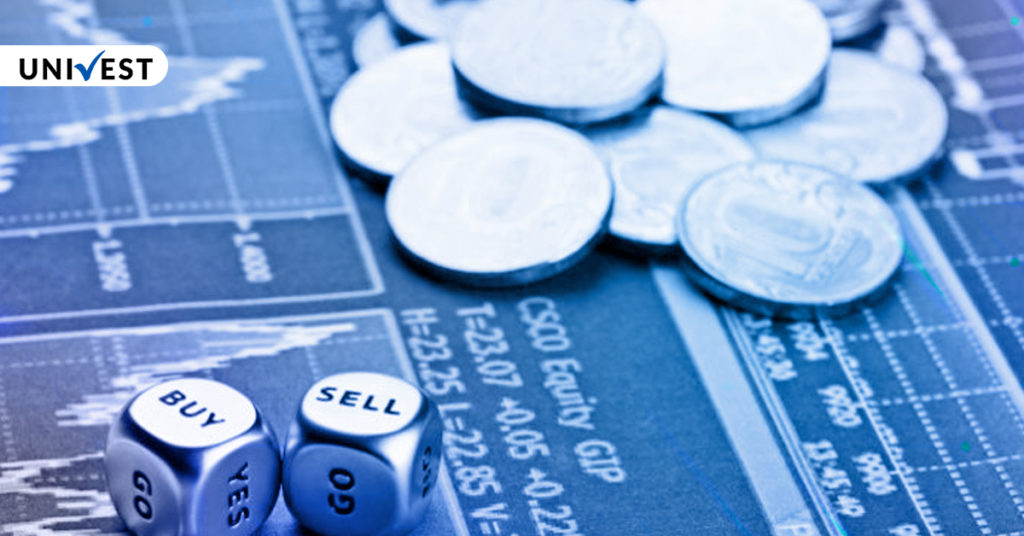
Stock Market Investment: Know About Charges, Taxes, and Fees
Posted by : sachet | Thu Jul 24 2025

The cost of investing in shares has increased directly or indirectly. One must know all about brokerage fees, taxes, and other charges in stock market investment, as they could impact returns.
In the interim budget of July 2024, the Finance Minister of India, Smt. Nirmala Sitharaman announced that the rate for STCG (Short-Term Capital Gains tax) had been increased to 20%. However, some other assets will remain in the previous category of a 15% tax rate. Likewise, many other types of taxes/charges are also available and must be paid by investors.
It sometimes demotivates individuals to invest money. But don’t worry—Univest values your time and money. We’re here with a deep understanding of the cost of investing in stocks so that you can generate higher returns.
Why Do People Prefer Stock Market Investment?
Many young and not-so-young people consider investing in stocks. They know that bank deposits are no longer appealing due to the low interest rates, so investing in shares is an impeccable option.
Stocks outperform most other investment options. However, you should be aware of the many charges involved in stock market transactions.
Components Included in Cost of Investing
An investor must pay fees when purchasing or selling shares. Returns earned in the stock market are taxable. But the question is how. For your better understanding, some of the components of charges related to the stock market are mentioned below.

Brokerage Charges
To invest your invaluable money in the market, you must register with a broker. This broker will place all the transactions on your behalf and charge a minimal fee, which is called brokerage charges/commission.
A broker often charges a % of the transaction value. For example, if you make a transaction of buying or selling worth Rs 1,000,000, and your broker may charge a 0.3 % commission, then brokerage charges would equal Rs 300. Brokerage charges can be categorized into two different parts. Let’s explore them together.
- Full-Services Brokers
Full-service brokers offer an all-inclusive trading service that covers trading stocks, currencies, commodities, and related services such as research advisory, sales and asset management, investment banking, and so on. A full-service broker may charge anything from 0.01 % to 0.5 % in brokerage fees for delivery and intraday trading.
- Discount Brokers
Discount brokers offer investors a trading execution platform in exchange for a commission. They do not, however, provide investment advisory services. Their fees range from Rs 10 to Rs 20 for each trade on intraday trading and delivery. However, certain budget brokers do not charge a fee for delivery trading.
While investing, the brokerage must be paid on both sides. However, it is common to encounter brokers who only charge a brokerage fee on one end of the transaction: selling or purchasing. Most discount brokers charge an AMC (Annual Maintenance Charge) to be paid annually.
STT (Securities Transaction Tax)
The Finance Act introduced STT (Securities Transaction Tax) in 2004 when people started evading tax on capital gains by not revealing their returns on the sale of shares. It is the direct tax levied on you when selling stocks in intraday trading.
The interim budget 2024 proposes increasing the STT on futures to 0.02%, from 0.02% earlier. The fee for intraday STT is approximately 0.025 % of the total transaction on the selling party.
Stamp Duties
This cost is levied on the value of transferred shares, and the rate varies by state because states set and collect stamp duty. It is levied on both the purchasing and selling sides and calculated based on the overall turnover value. We’ve tabulated the stamp duty rates for stock market investment.
| Segment | Stamp Duty Rate |
| For Equity Intraday | 0.003% on buying |
| For Equity Delivery | 0.015% on buying |
| For F&O (Futures and Option) | 0.002% on futures and 0.003% on options (buying Only) |
Transaction Charges
The stock exchanges levy transaction fees on both parties (Buyer and Seller) of the transaction. The National Stock Exchange (NSE) charges a transaction fee of 0.00297% on equity delivery, whereas the Bombay Stock Exchange (BSE) charges a transaction fee of 0.00375 % on turnover.
These were the general percentages. However, from 1 October 2024, the NSE will charge INR 1.73 per lakh on equity futures, which was earlier INR 1.88. Reducing the liability of transaction fees would be a remarkable relief for investors. And to do so, there are some activities you can consider when investing in the stock market.
These steps include broker comparison, commission negotiation, optimising order size, investing in ETFs (Exchange-Traded funds), buying no-load mutual funds, and many more.

Turnover Charges of the Securities and Exchange Board of India (SEBI)
Almost 7884 organisations are listed on the Indian stock market. It is a complex task to manage daily volume or transactions. India had already faced major scams related to stock investing. SEBI is now working to monitor and regulate smooth functioning.
As a regulatory authority established under Section 3 of the SEBI Act 1992, SEBI understands the significance of protecting investors’ interests and market regulation. It is the leading market regulator of India’s securities markets.
SEBI charges a fee on both sides of a trading transaction, with a turnover charge of around 0.0001% of the turnover amount. The fees are the same for intraday and delivery stock market trading.
Participant Depository Fees
The Central Depository Services Limited (CDSL) and the National Securities Depository Limited (NSDL), India’s two stock depositories, charge a fixed fee to retain your transactions in electronic form.
The depositories do not charge the investors directly, but the depository participants (your demat account provider or broking company) do. As a result, the depositories charge the depository participants, who charge the investors.
It is charged on the seller’s side, who sells shares in the market. They charge a flat fee of around Rs 10 – 20 only from sellers of delivery trading, not from intraday stock market investment.

Capital Gains Tax
Capital gains tax is a key consideration for an investor when selling assets (property, stocks, bonds, etc). Capital gain tax is levied on the returns investors generate from the sales of long-term holdings. In India, up to INR 1.25 lacs of return is exempt from the long-term capital gains tax.
Another point traders must be aware of is the types of capital gains tax. There are two types of capital gains tax: Short-Term Capital Gains Tax and Long-Term Capital Gains Tax. Let’s explore them together.
- Short Term Capital Gains (STCG) Tax
If your holding duration is less than 12 months (in the case of stocks, securities, and mutual funds) and 24 months (in the case of real estate), you will be subject to short-term capital gains tax. It was levied at a flat rate of 15% on the transactions made on or before 22nd July 2024. However, in the interim budget for 2024, this rate was increased to 20%. In addition, the necessary cess and surcharge are imposed. This rate applies regardless of your income tax bracket.
Exemption:
One wishing to reduce liability on short-term capital gains tax must know that Section 54B/54D can relieve them. These two sections allow taxpayers to gain from the sale of agricultural land, reinvestment in another similar land, and sale of industrial land/buildings, among others. The primary purpose of designing such a provision is to enforce the reinvestment in specific assets. Yet, it also benefits taxpayers/investors.
- Long Term Capital Gains (LTCG) Tax
As per Section 112 and Section 112A, if you sell your shares after a one-year holding period, the capital gains realised are termed as ‘long-term.’ These gains of up to Rs 1 lakh per year were tax-free before 22nd July 2024.
Long-term capital gains of more than Rs 1 lakh were taxed at 10%, and indexation was prohibited until 2023. However, the government of India has increased the long-term capital gains tax to 12.5%.
Exemption:
Most investors paying LTCG must realise that a massive part of their returns is included in this slab rate. If you’re one of them, you can simply avoid paying long-term capital gains tax by claiming exemptions under Section 54/54B/54D/54EC/54F.
How to Calculate Investment Cost?
Calculating your investment cost is essential. To do this, you must determine the weighted average cost of investment units. But what is WAC? It reflects the average cost per unit of the investment over time. Consider the below-mentioned steps to calculate your cost of investing in the stock market.
- Determine the Price and Amount Invested
Calculate the amount you’ve invested and the price per unit at the time of purchase. Keeping a record of the investment could ultimately help you optimise it.
- Calculate WAC
After determining the price and the amount invested, proceed to the next step, which is calculating WAC. Here is how to calculate it.
WAC (Weighted Average Cost) = (Total fund inflows) / (Number of units bought) × (Existing number of units of funds)
- Adjust WAC for Withdrawals
Remember that WAC changes with each transaction. Adjustments can help you track the real-time cost of investing. Also, you can calculate the capital gains or losses when the units are sold.
Key Takeaways
- Budget 2024 significantly changes the short-term capital gains tax rate (from 15% to 20%) and long-term capital gains tax rate (from 10% to 12.5%).
- A full-service broker can charge anywhere from 0.01% to 0.5% from the investors.
- SEBI (Securities Exchange Board of India) charged 0.0001% of the turnover amount as it regulates the stock market investments.
- Flat Rs 10 to 20 on delivery trades will be paid to depositories like NSDL and CDSL.
- After 1st October 2024, the NSE (National Stock Exchange) charges Rs 1.73 per lakh.
- Calculate and keep a record of your WAC to optimise the cost of investing appropriately.
Final Statement
These are some of the fees that an investor or trader should be aware of when trading stocks. In addition, it is critical to remember the risks associated with equities in stock market investments. Before investing in the stock market, do your homework and seek professional financial guidance if necessary. There will be no savings on trading fees if you lose money on your investments due to reckless investing.
Frequently Asked Questions
- What is equity investing?
Equity investment is defined as any investment made to purchase shares of a company. Simply put, this is the money spent on purchasing company shares that are exchanged on a recognised stock exchange. In general, equity shares are purchased to achieve long-term financial gains and earn dividends throughout the investment period.
- What are the advantages of Equity Investments?
The fundamental source of profit in stock investments is the expected growth in the value of the principal invested, which is known technically as capital gains. If a firm does well, its share price rises. When an investor’s investing horizon exceeds five years, he or she is more likely to realise excellent capital gains.
A firm may opt to distribute profits to its shareholders through dividends. Dividends are paid only once the company has a significant surplus after meeting its maintenance costs and covering the costs of its new initiatives and expansions (if any). Large-cap or blue-chip companies are known to pay out dividends regularly.
- How much capital gain tax is free?
After the Union Budget 2024 proposition, a long-term capital gain tax of 12.5% will cover all financial and non-financial assets. Investors can broadly calculate their capital gain from the formula: (full value of the consideration received) – (cost of acquisition of capital asset) + (cost of improvement of capital asset) + (expenditure incurred in connection with transfer of capital gains).
- What is the short-term capital gains tax rate?
STCG (Short-term capital gains) on shares and mutual funds were subject to a 15% rate until 22 July 2022. However, the government of India increased it to 20% on 23 July 2024. In the Union Budget 2024, capital gains tax is exempted up to INR 1,25,0000, which was earlier limited to INR 1,00,000.
Upcoming IPOs
| IPO Names | Expected Year of IPO |
| PhonePe IPO | 2025 |
| Bajaj Energy IPO | 2025 |
| OYO IPO | 2025 |
| NSDL IPO | 2025 |
| Flipkart IPO | 2025 |
| Zepto IPO | 2025 |
| boAt IPO | 2025 |
| Meesho IPO | 2025 |
| Jio IPO | 2026 |
| NSE IPO | 2025 |
Current & Previous IPOs
| Company | IPO Open | IPO Close | Type |
| GNG Electronics Limited | 23rd July 2025 | 25th July 2025 | Mainboard |
| Indiqube Spaces Limited | 23rd July 2025 | 25th July 2025 | Mainboard |
| Monarch Surveyors & Engineering Consultants Limited | 23rd July 2025 | 25th July 2025 | SME |
| Savy Infra & Logistics Limited | 21st July 2025 | 23rd July 2025 | SME |
| Swastika Castal Limited | 21st July 2025 | 23rd July 2025 | SME |
| Monika Alcobev Limited | 16th July 2025 | 18th July 2025 | SME |
| Anthem Biosciences Limited | 14th July 2025 | 16th July 2025 | Mainboard |
| Spunweb Nonwoven Limited | 14th July 2025 | 16th July 2025 | SME |
| Smartworks Coworking Spaces Limited | 10th July 2025 | 14th July 2025 | Mainboard |
| CFF Fluid Control Limited | 9th July 2025 | 11th July 2025 | SME |
| GLEN Industries Limited | 8th July 2025 | 10th July 2025 | SME |
| Chemkart India Limited | 7th July 2025 | 9th July 2025 | SME |
| Travel Food Services Limited | 7th July 2025 | 9th July 2025 | Mainboard |
| Smarten Power Systems Limited | 7th July 2025 | 9th July 2025 | SME |
| Meta Infotech Limited | 4th July 2025 | 8th July 2025 | SME |
| Cryogenic OGS Limited | 3rd July 2025 | 7th July 2025 | SME |
Read Our Articles on the Best Stocks
Tech Stocks in India to Invest in 2025 | Tech Sector Stocks
Best Battery Stocks in India to Invest in 2025 | Battery Sector Stocks
Best Shipping Stocks in India to Invest in 2025 | Shipping Sector Stocks
Paint Stocks in India to Invest in 2025 | Paint Sector Stocks
Paper Stocks in India to Invest in 2025 | Paper Sector Stocks
Best Semiconductor Stocks in India 2025
Best Large Cap Stocks in India 2025
Best Cement Stocks To Invest in India
Also Explore
| Best Stocks | Multibagger Stocks | Penny Stocks | Fundamentally Strong Stocks | Sector-Wise Stocks | PSU /Government Stocks |
| For the Next 10 Years | For the Next 5 Years | Solar Penny Stocks | On BSE | Solar Energy Sector | PSU Stocks List |
| Long Term | Below 100 Rs | Top 5 Penny Stocks | For Long-Term | Hospitality Sector | PSU Stocks in 2025 |
| Best Bike Stocks | For 2025 | Best Penny Stocks in India | Penny Shares | Hotel Sector | Government Stocks in 2024 |
| Best Liquor Stocks | High-Growth Stocks | For 2025 | Agriculture Sector | Government Stocks List | |
| Best Railway Stocks | Under 500 | Penny Stocks | Pharma Sector | Government Stocks in 2025 | |
| Best Auto Stocks | For 2026 | Oil and Gas Sector |
Univest Screeners
Explore Webstories on Univest
1. Best Time To Buy Dividend Stocks
2. How RBI Policies Affect Dividend Stocks
3. Can Dividend Stocks Beat Inflation
4. What Is The Dividend Aristocrat List

